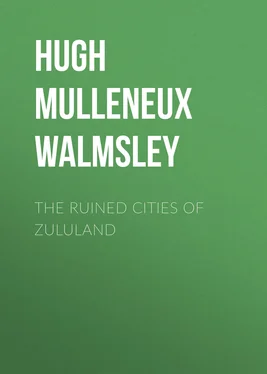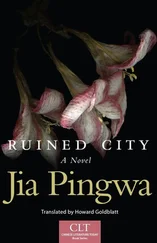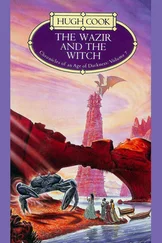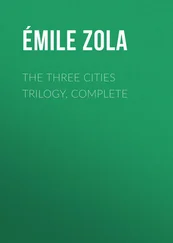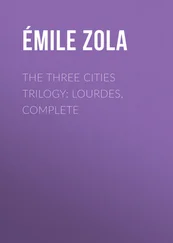Hugh Walmsley - The Ruined Cities of Zululand
Здесь есть возможность читать онлайн «Hugh Walmsley - The Ruined Cities of Zululand» — ознакомительный отрывок электронной книги совершенно бесплатно, а после прочтения отрывка купить полную версию. В некоторых случаях можно слушать аудио, скачать через торрент в формате fb2 и присутствует краткое содержание. Жанр: foreign_prose, История, foreign_edu, foreign_antique, на английском языке. Описание произведения, (предисловие) а так же отзывы посетителей доступны на портале библиотеки ЛибКат.
- Название:The Ruined Cities of Zululand
- Автор:
- Жанр:
- Год:неизвестен
- ISBN:нет данных
- Рейтинг книги:4 / 5. Голосов: 1
-
Избранное:Добавить в избранное
- Отзывы:
-
Ваша оценка:
- 80
- 1
- 2
- 3
- 4
- 5
The Ruined Cities of Zululand: краткое содержание, описание и аннотация
Предлагаем к чтению аннотацию, описание, краткое содержание или предисловие (зависит от того, что написал сам автор книги «The Ruined Cities of Zululand»). Если вы не нашли необходимую информацию о книге — напишите в комментариях, мы постараемся отыскать её.
The Ruined Cities of Zululand — читать онлайн ознакомительный отрывок
Ниже представлен текст книги, разбитый по страницам. Система сохранения места последней прочитанной страницы, позволяет с удобством читать онлайн бесплатно книгу «The Ruined Cities of Zululand», без необходимости каждый раз заново искать на чём Вы остановились. Поставьте закладку, и сможете в любой момент перейти на страницу, на которой закончили чтение.
Интервал:
Закладка:
“I’ll tell you what, Wyzinski,” answered Hughes, “I may live to see you run just as fast yet.”
A cry from Masheesh, at this moment, drew attention for the time from the subject. The baboon darted out of the small tent holding something he had stolen. Luji, with a loud shout, dashed after him. Away went the two round and round, the monkey chattering and screaming, but still firmly grasping the object, which proved to be the captain’s powder-flask.
“You should try your hand, Hughes,” drily remarked the missionary. “Your pace beat that this morning.”
Hardly were the words spoken when, with a scream of delight, the baboon vaulted right over the stooping missionary, using his shoulders for the spring, and alighting close to the fire, dropped the flask just into the centre of the blaze, and then bounding off a few paces, stood jabbering and grimacing.
The tent was only a few yards away.
“Run, Wyzinski,” shouted the soldier, “all our powder is in the tent.” The whole thing was done in a second, and the soldier and missionary scudding down the slope at a tremendous pace the next. Losing his footing, away went Wyzinski, rolling among the stones and bushes, just as the explosion took place.
Luckily, there was little powder in the flask, but the burning embers were blown right and left, and the tent struck by them. The baboon was dreadfully singed, and awfully frightened, and not a beauty before, became literally hideous; but no further harm was done.
“You had better exchange your robes against a subaltern’s epaulettes in the Light Company of the 150th Regiment,” laughed Hughes.
“I’ll think of it,” replied the missionary; “but, Hughes, will you give me a certificate?”
“Most certainly. I can’t hold a candle to you at running away, Wyzinski,” for the soldier thought he had the best of it now.
“Oh, I didn’t mean that sort of a certificate. Will you certify there are no monkeys in your Light Company?” remarked the missionary.
“Good-night, Wyzinski,” was the only answer vouchsafed; and they both turned in laughing.
Passing Quissanga and Goanha, the little caravan kept steadily on to the northward, making short marches daily, until a period of three weeks had elapsed since they had outspanned from the banks of the Limpopo. Their camp was pitched at the foot of the spur of the Nyamonga mountain range called Gorongoza. It was a pleasant spot, and here they determined to rest a while. Several streams of bright, clear, cold water burst from the mountains, and, after wandering about for some distance, threw themselves into a river, which ran away towards the sea. Forests of the cedar-trees clothed the mountain-sides, and to these Wyzinski pointed triumphantly, asserting that they must now be close to the ruins, “There they are,” would he say; “and though there may exist a marked difference between them and the far-famed cedar of Lebanon, though they may have degenerated since the days when Pharaoh Necho’s seamen lived under their shade, yet in those cedar groves lie the fallen ruins of the old cities of Zulu land, and there is enough timber to supply the world.”
“I wonder what we should do without the custard-apples?” said Hughes, the evening of the day when they arrived at Gorongoza.
“But why call it custard-apple, Hughes?”
“Because it is exactly like the custard-apple of the Madras Presidency, black, rough, and repulsive-looking outside, and a white, delicious custard inside, cool as if iced. It grows plentifully, like blackberries, up-country there.”
“Well, I almost prefer the mobala fruit. Under the tropical sun, which, by the way, has tanned you to a mahogany colour, Hughes, it reminds one of the strawberries of England. I shall open a campaign against the wild duck. There seems lots of them.”
“Here comes the Matabele chief; what has he got? Eggs, ducks’ eggs, as I am a sinner. Won’t that be a treat after weeks of venison diet?”
The chief gravely stalked up to the two, and placing his eggs on the ground, squatted down, and looking the missionary full in the face, pointed down the course of the river, merely uttering the word “Sofala,” then changing the direction of his finger, pointed to the north-west, letting fall the dreaded word, “Tetsé.”
The two Europeans looked at each other. A volume could not have better expressed his meaning. Down the stream lay the ruins which had been formerly mentioned. Right in their onward path was the dreaded tetse-fly, sure death to cattle.
“Let us hold a council of war, Wyzinski,” said Hughes, after the two had looked at each other in dead silence. “Here, Luji, come here. We are going to have a palaver.”
“Masheesh, must we send back the waggon?”
The Matabele chief spoke volubly, frequently using the word “Tati,” and then pointing to the river which was running near them, calling it sometimes the Sabe, sometimes the Ouro.
“Do you hear?” asked Wyzinski, eagerly. “The Thati and the Ramaquotan rivers run into the Limpopo, and this river he calls the Ouro, or golden river.”
“Who owns the land, Luji?” asked Hughes.
“Mozelkatse once owned it, master. Now it is the country of Machin, the Batonga, and the Banyai.”
“Can Masheesh procure a canoe? and can we go down the river?” were the next questions.
Both were answered satisfactorily. The Batonga were a friendly people, like the Bechuanas, and feared the Matabele Kaffirs, whose chief, Mozelkatse, had more than once punished them; and after a long talk, it was determined to send back the waggons and horses to the nearest mission, that at Santa Lucia Bay, and go down the river to the sea, before breaking up the camp at Gorongoza.
“It is hard to send back our waggon,” exclaimed Hughes, during a pause in the work of packing.
“We should but have to leave it and all it contains on the way, if we met with the tetse-fly. Its sting is sure death to cattle.”
“And does it harm man?” inquired Hughes.
“Singular to say it does not and I do not believe in its existence so near this coast-line; still it’s no use running the risk.”
“We then resolve to strike the Zambesi, somewhere near Tête or Senna?”
“Yes, passing through the kingdom of this same chief, Machin, who seems to be almost a rival to Mozelkatse.”
It was with feelings of great regret the two saw the waggon with its great tilt, lumbering away an hour or two before sunset, under the charge of the missionary’s men, and bound for the station of Saint Lucia Bay,—it had been their home so long, that the cattle and horses seemed to them as friends. It was hard to part with them. The ground was strewed with packages, which were to be made up in the most commodious form for carrying, and the party was reduced to its original number of seven, with the addition of the Matabele and the two Europeans. A smaller tent had been fashioned by Noti and Luji, out of some spare canvas, easily carried, and it was now pitched by the river side, under the thick shade of a group of trees. Just as the last rays of the sun were gilding the river with gold, making it, indeed, look like the Gold River, Masheesh dropped down it in a canoe, and sunrise saw them on their way to Sofala. The crew of the boat consisted of the missionary, Captain Hughes, Masheesh, and the powerful Kaffir, Noti; Luji being left in charge of the camp at Gorongoza. Floating down the river in a comfortable canoe, between banks whose verdure was most luxuriant, was a pleasant change after the days of toilsome march. The palmyra, the wild date, mohanno, mowanna, and many other tropical trees grew in rich luxuriance, while the thick tangled undergrowth, mixed up with a host of creeping cane-like plants, rendered it impossible to penetrate the forest-land. Long reeds of various kinds hung over the banks, and beautiful water-lilies of gigantic size floated on the water. Wherever a break occurred among the trees, grew grass, or fields of wild maize or wild cotton were to be seen, and now and then the water antelope would dash into the stream and swim across. The party trusted to their rifles for food, and one of these antelopes coming well within range, Wyzinski fired, wounding the animal severely just as he reached the shore. The canoe dashed on to overtake it, which would easily have been done, for the deer was unable to climb the steep bank, and twice failed in the attempt, falling back into the water, when a huge alligator rose, showing his long shovel-shaped snout above the river. A ball struck the alligator, but without penetrating its mail. The deer struggled wildly for a moment, several other dark log-like forms showed on the bank, and the antelope disappeared, the water bubbling crimson for a moment; the next the canoe moved gently over the reddened river, and all was still.
Читать дальшеИнтервал:
Закладка:
Похожие книги на «The Ruined Cities of Zululand»
Представляем Вашему вниманию похожие книги на «The Ruined Cities of Zululand» списком для выбора. Мы отобрали схожую по названию и смыслу литературу в надежде предоставить читателям больше вариантов отыскать новые, интересные, ещё непрочитанные произведения.
Обсуждение, отзывы о книге «The Ruined Cities of Zululand» и просто собственные мнения читателей. Оставьте ваши комментарии, напишите, что Вы думаете о произведении, его смысле или главных героях. Укажите что конкретно понравилось, а что нет, и почему Вы так считаете.
